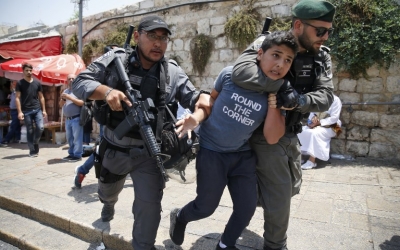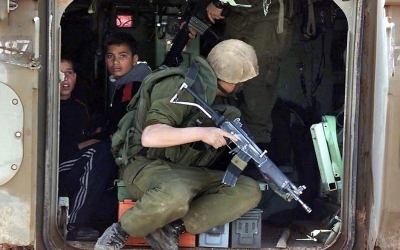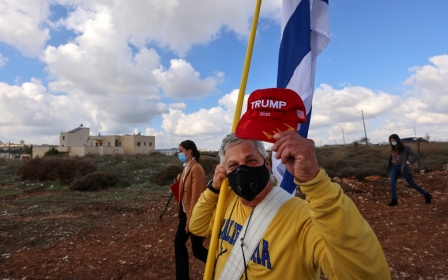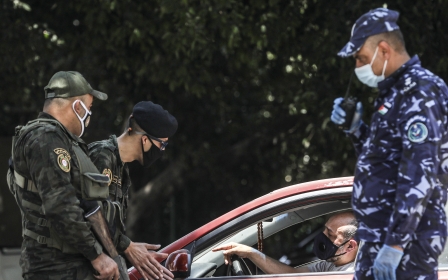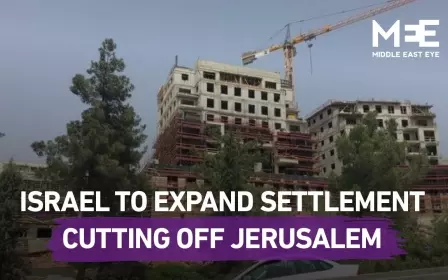The 'banal' trauma of Israel's nightly raids on Palestinian children
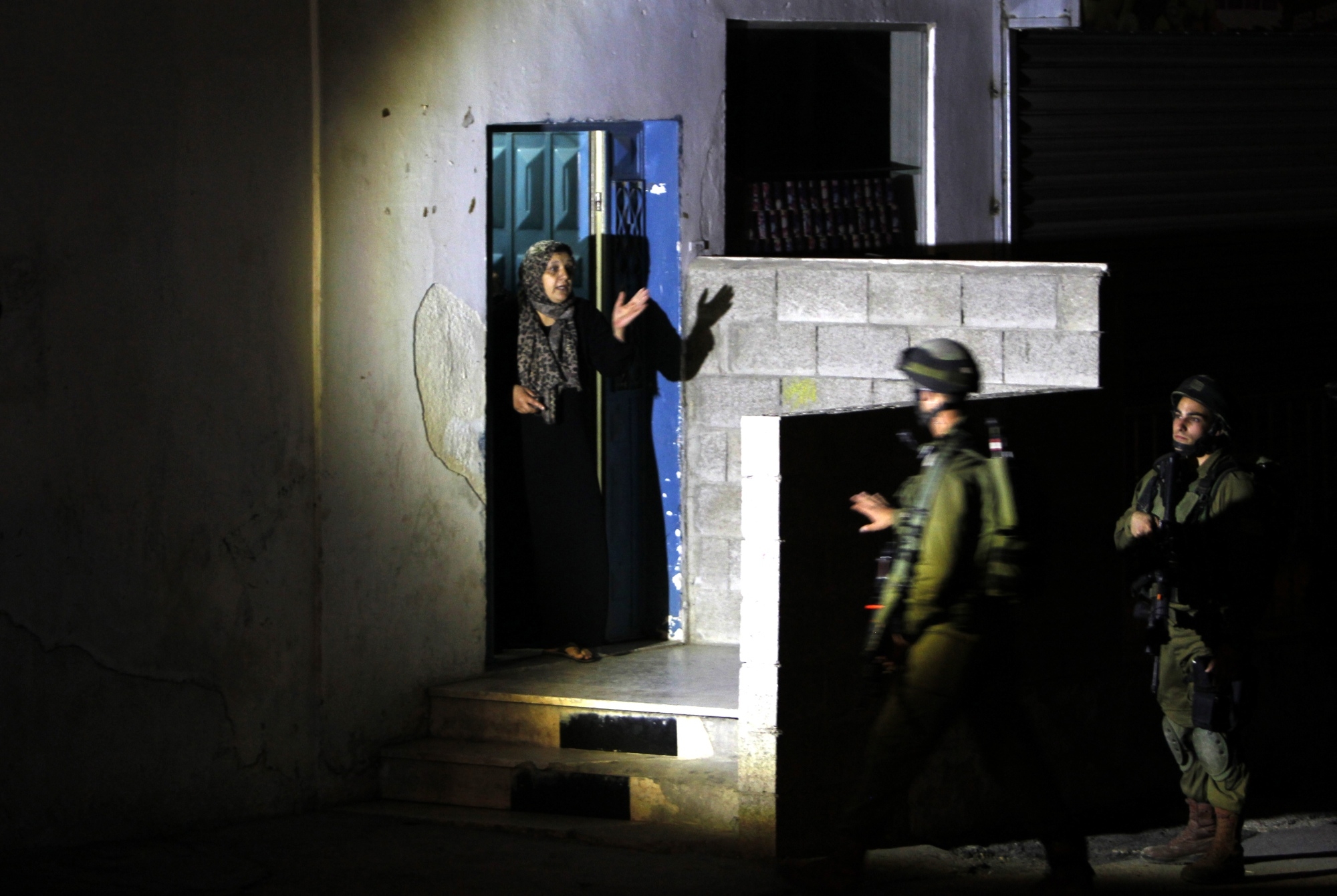
A sudden noise pierced the silence of a dark night.
The infuriated banging on the gate of the blue-painted house terrified not only the family sleeping behind it but the whole neighbourhood.
The cries of babies alarmed by the shrill noise blended with the ear-splitting sound of fists banging on iron.
This is not the banal opening of a mysterious fictional story. It is the day-to-day life of Palestinian families in hundreds of villages all over the occupied territories: Israeli soldiers appear at the doorsteps of families in deep sleep, between 10pm and 5am, coming to search, arrest or detain a relative.
Sometimes, they come with no particular reason. Too often, they leave accompanied by a blindfolded and handcuffed youngster plucked from his bed, followed from a distance by the receding sounds of crying, painful screaming and muted voices of despair of the family.
Hundreds of Palestinian teenagers are arrested by the Israeli military every year in nightly raids, violating the military’s own regulations with regards to issuing summons for interrogation prior to detention, according to a report issued by the Israeli human rights group HaMoked on Wednesday.
The report said summons would have enabled the boys to attend interrogation without the need for the traumatic experience of the nightly raids.
Its findings are based on 81 testimonies from boys aged 14 to 17, who were arrested at various times in 2018 and 2019.
'Accumulative trauma'
Last week, the coronavirus-stricken world found alternative ways to mark International Children’s Day.
In Israel, under the title: “At night, while everybody is asleep”, several Israeli human rights organisations, including Breaking the Silence and Parents Against Child Detention, gathered to read testimonies of soldiers who participated in those nightly actions, as well as from Palestinian children and families who suffered from this practice and are victims of its long-lasting consequences.
Parents Against Child Detention is the newest of those organisations, formed just two years ago by two Israeli mothers and activists, Moria Shlomot and Nirith Ben-Horin, who are committed to documenting and raising public awareness to the alarming scope of this undiscussed phenomenon and consistent violation of rights of those children.
According to Parents Against Child Detention and Military Court Watch, 150 to 200 Palestinian children from the occupied West Bank and East Jerusalem are held by Israeli authorities at any given time. Every year, Israel detains about 1,800 minors for varying periods of time.
The fact that Israel has signed international conventions on children’s rights is ignored.
Israeli criminal justice law relating to minors - which mandates that during these sensitive years of childhood and adolescence “use of authority must be carried out while protecting the dignity of the minor” - does not apply to Palestinian children in the West Bank, who are arrested and tried under the military system.
This system is not mandated to consider the mental health and development of children. Many aspects of this practice and routine are plain illegal.
The consequences are unavoidable. According to mental health workers affiliated with Parents Against Child Detention: “Palestinian children in detention experience disorientation, fear, shame and guilt. In many cases, due to serious threats, they also experience fear for the safety of their family.”
Testimonies
Listening to the testimonies of the children and their families, it seems unavoidable.
Avner Gvaryahu, executive director of Breaking the Silence, calls this repetitive practice “accumulative trauma.” Testimonies of children further confirm this assessment.
A 14-year-old boy from al-Arroub refugee camp in the southern West Bank recounted the night of his arrest:
“I woke up at 2.30 am, when 15 Israeli soldiers broke into our house… Some were masked... The commander told me I am under arrest. They handcuffed me tightly, my hands behind my back... It was painful. I complained, but they just told me to keep quiet... I was detained. Then came the interrogation... They said I threw a Molotov bottle on a settlers’ bus... I did not. They were very aggressive… After a few hours I chose to admit to it, just to get it over. Deep into the night, a member of the family was waiting for me at every possible checkpoint since they could not know when and from where I would be allowed to enter…”
Another minor whose testimony was shared on International Children's Day recounted a very similar story with slight variations.
“My interrogator made me sign some document... I do not read or write Hebrew but he insisted, so I did. I was released late at night. It was freezing cold and rainy... I was afraid.”
Here’s another testimony of a 40-year-old mother of three from a village in the southern West Bank, Beit Ummar:
“Loud screaming in Hebrew and banging on the door woke us up at 5am. I opened the door. Six soldiers accompanied by dogs entered the house. I told the soldier my husband just underwent open-heart surgery. It made no difference. My 10-year-old reacted with a severe asthma attack; the eight-year-old has been wetting his bed since the soldiers first came to the house two years ago. Now, he did it again… The soldiers pushed us all into one room. I tried to find a blanket to cover the children but the soldiers threatened me and would not let me... They left about three hours later, said nothing, explained nothing.”
All stories sound similar, but each encapsulates different trauma.
Proximity to settlements
Still, they share one surprising common denominator: according to a Military Court Watch report, “evidence suggests a strong geographic link between West Bank settlements (and their associated road network) and the military detention of children nearby. In 2019, the children who were detained lived on average within 900 metres of a West Bank settlement.”
As Hercule Poirot, the famous detective would say: “It’s too much of a coincidence to be a coincidence”.
Shlomot, the executive director of Parents Against Child Detention, couldn’t agree more.
'Due to the proximity of the settlements to Palestinian villages, the military imposes extra protection measures, including intimidation and spreading fear among Palestinians as deterrence'
- Moria Shlomot, Parents against Child Detention
“Authorities claim the proximity causes friction and enhances violence of the Palestinians against the settlers,” she told Middle East Eye.
“We want to offer an alternative explanation: due to the proximity of the settlements to Palestinian villages, the military imposes extra protection measures, including intimidation and spreading fear among Palestinians as deterrence. Hence the number of minors detained within this geographic circle.”
Former Israeli MP and activist Mossi Raz was one of the many who volunteered to read the testimonies on International Children’s Day. Nothing outstanding in the story he presented. Nobody died.
“This is exactly what struck me,” said Raz, talking to MEE, “the banality of it all. The coming and going of the soldiers whenever they want, the total distortion that became banal routine. This is the very essence of occupation - the every day and night intimidation and humiliation.
"There must be a total distinction between detention of adults and detention of minors. Unfortunately, these practices are deeply rooted and they will change only when occupation ends.”
“Our immediate aim is to make sure that detention of minors comes as a last resort only and for the shortest time,” says Shlomot. “Even this minor expectation does not materialise. The brutality of detention of minors does not end with the night invasion into their family home. It continues with the minor being driven to a military base, blindfolded and humiliated by the soldiers in the vehicle; it continues with the wait for an Arabic-speaking interrogator to come, sometimes with no food and no access to the toilet.
"Some children report manipulative pressure imposed on them using their families - like threatening to revoke their father’s working permit or their aunt’s permit to get medical treatment in Israel," she added.
"On top of everything else, the children are obsessed with guilt and tend to admit even when not guilty at all. Most of the time, they are detained for stone throwing, which is considered a security offence even when no damage is caused.”
Despite some cosmetic reforms to the military law in the West Bank, there remains an abundant number of child arrests and detentions.
“A child’s best interest,” as a guiding principle in international children’s conventions, certainly does not apply here.
Middle East Eye delivers independent and unrivalled coverage and analysis of the Middle East, North Africa and beyond. To learn more about republishing this content and the associated fees, please fill out this form. More about MEE can be found here.


